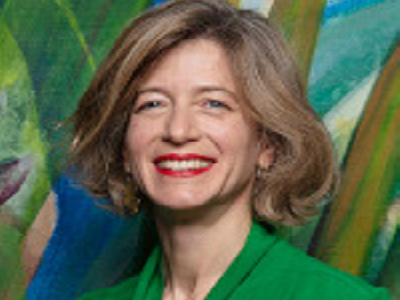Race for talent: how the UPC is influencing the French associate market
While parties filing UPC cases is an increasingly common aspect of patent litigation practices, the development is also of rising importance for patent litigation associates. For an up-and-coming generation of French IP lawyers, the UPC is above all an opportunity; law firms can also take advantage of its clout during the recruitment phase.
27 March 2024 by Christina Schulze
The launch of the Unified Patent Court is good news for aspiring lawyers – and for associate recruitment. Due to short deadlines and various national influences within the system, teamwork in pan-European cases is now of even greater importance. Pan-European patent cases are about developing a common strategy and coordinating national litigation, which continues at the UPC.

Amandine Metier
Amadine Métier, partner at Hoyng ROKH Monegier in Paris, says, “Each team no longer writes its own national briefs, they are written jointly in international teams. As a result, we are all learning to work even more closely together and to standardise our national styles.”
This process, which brings with it new detailed discussions, is something that a young generation of associates has experienced since last year.
Thus, for many lawyers who specialise in patent litigation, the UPC offers a particularly attractive environment in which to progress their careers.
A new UPC world
The UPC is new for everyone, which is why it naturally also offers opportunities for younger lawyers. Several associates describe their expectations to JUVE Patent: they see the court as an advantage for their future careers.
In a litigation market such as France, where experienced lawyers often do not offer up-and-coming talent the chance to plead until relatively late into their careers, the UPC presents a challenge to traditional training methods.
Another development is that trainees can already include placements at the UPC divisions in their internships. This gives them the opportunity to experience and learn first-hand from the judges’ discussions on fundamental legal issues, as well as their way of working. Prospective lawyers thus quickly gain a first impression of the new court, which lends an advantage over experienced associates who may only interact with judges during events such as conferences, or when pleading a case. Given the public and client interest in the UPC, such visibility is a boost for young talent in France.
Changing demands in France
However, the opportunities offered by the UPC also present some law firms with new recruiting challenges. During the research for the recently published JUVE Patent France ranking, it became obvious that associates often seek out law firms with a clear specialisation and related track record for pan-European cases. Increasingly, these seem to be a more attractive prospect.
This is based on two assumptions by lawyers: firstly, that UPC cases will replace some national cases over time; secondly, that in order to be profitable, future business cases must be even more international than before. Whether out of enthusiasm for international patent cases or for economic reasons, lawyers specialising in IP are currently looking more toward firms with many international patent cases. Clearly, the move could disadvantage for smaller teams with national client bases.
National teams remain strong
But, even with the dawn of the UPC area, law firms with a national set-up still have a chance to compete for associates. One example of this is French IP firm Aramis, where partner Benjamin May won four associates from competitors for his team. His practice is frequently involved in more international litigation than other French teams in national firms of the same size.
In addition, some associates in the French market hold a certain amount of scepticism regarding working conditions in US law firms, or in law firms which they perceive as being dominated by a UK team. In these cases, commentators consider such firms demanding in terms of working hours and, above all, attendance.

Caroline Casalonga
But in these firms, the opportunities for promotion are not necessarily better. Furthermore, the patent teams at market-leading law firms Hoyng ROKH Monegier and August Debouzy in particular have an excellent reputation for their organisational methods and work-life balance.
Clear path ahead
Furthermore, the trend towards greater cooperation between patent attorneys and lawyers, ongoing in France for several years, also plays a role in associate training.
Caroline Casalonga, managing partner at IP law firm Casalonga, says, “We have realised it has a key impact in recruiting that we convey the experience and knowledge of mixed teams during training”. She also points out that clear career paths are an important argument for the younger generation. “It is very important for the younger generation that we make development steps within the law firm transparent,” she says.
As the UPC progresses, it will be interesting to see whether training for associates will become even more international, and how smaller national teams will find their way on the path to attracting new lawyers in France.
